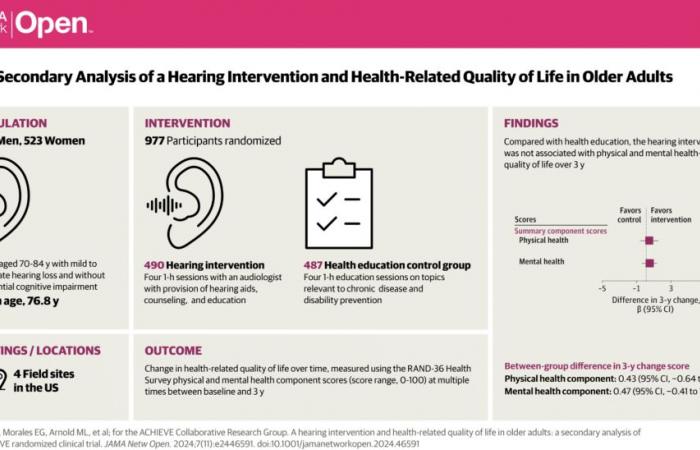A randomized clinical trial conducted on the observation of more than 900 patients over three years was carried out to determine whether a hearing intervention was associated with an improvement in patients’ quality of life.
By Lucien Brenet, published on November 29, 2024
Numerous studies have demonstrated a link between hearing loss and its harmful effects on quality of life: communication difficulties, depression, cognitive decline, or even loneliness and social isolation. The consequences are numerous. But what happens once you are fitted? Does treatment of hearing loss improve patients’ quality of life?
This is what the ACHIEVE study attempted to demonstrate (Aging and Cognitive Health Evaluation in Elders). This three-year randomized clinical trial sought to evaluate the effect of a hearing intervention (hearing aids, associated technologies, counseling and education sessions) compared to a hearing health education program on cognitive decline and quality of life. The trial focuses on 977 adults aged 70 to 84 with untreated hearing loss and divided into two groups: those who received a hearing intervention and those who benefited from the health education program.
No conclusive evidence
Surprisingly, a secondary analysis of the trial demonstrates that hearing intervention is not associated with an improvement in physical and mental quality of life. On the other hand, researchers observed a potential reduction in social decline and fatigue. However, “the effect remains modest”notes the study, which adds: “Additional strategies may be needed to significantly influence the quality of life of older adults with hearing loss. »
The researchers, however, temper their results, indicating that they should be considered “as hypothesis generators and not as conclusive proof. » As is often the case, they call for additional research to be carried out to assess the real effectiveness of hearing intervention on quality of life.






